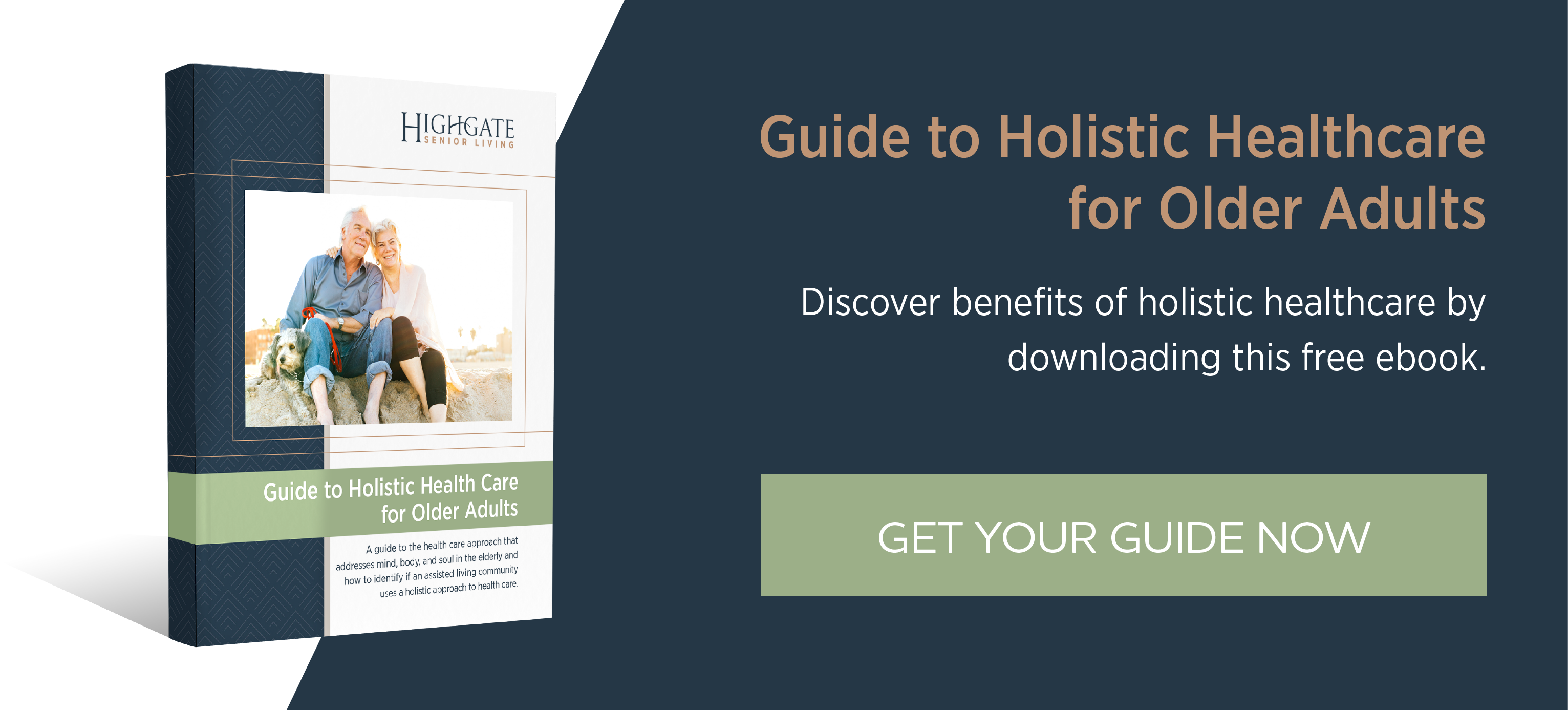 When your parent moves to an assisted living community, they’re getting a lot more than a new place to live. A safe environment, around-the-clock care, medical attention, nutritious and well-balanced meals, and help with the tasks of daily living are just a few of the benefits. But, choosing a community with a holistic approach to health care also means having access to health care professionals that advocate for your parent and look beyond medical diagnoses.
When your parent moves to an assisted living community, they’re getting a lot more than a new place to live. A safe environment, around-the-clock care, medical attention, nutritious and well-balanced meals, and help with the tasks of daily living are just a few of the benefits. But, choosing a community with a holistic approach to health care also means having access to health care professionals that advocate for your parent and look beyond medical diagnoses.
Holistic nursing care involves caring for the mind, body, and soul of residents. It involves thinking about and assisting residents with the effects of illness on the body, mind, emotions, spirituality, religion, and personal relationships.
Advocacy is a key element of holistic health care. It’s the process of looking at the impact of treatments prescribed to the residents being cared for and identifying if the treatments promote overall well-being (mind, body and spirit).
Holistic health care also entails identifying individual goals of each resident that encompass not just physical well-being, but emotional and spiritual well-being as well.
Dealing with Overmedication
Overmedication is a growing epidemic among the elderly. “Elderly patients are often seeing multiple specialists, and returning to the community with new prescriptions from each of them. The staff at the community is a sort of clearinghouse through which these new medications pass, so that there is someone ensuring that your parent isn’t needlessly taking excessive drugs,” says Marcie Suppe, director of resident services for Highgate Senior Living.
Unfortunately, coordination between medical specialists doesn’t always occur, so staff monitor how medications are interacting with each other, and if the overall treatment plan is benefiting the resident.
“We want to make sure [medications] are correct, necessary and at lowest possible dose,” says Suppe. If the onsite care team suspects the medications aren’t correct, “We’ll get right on the phone to the doctor and see what we can do about it right then, or in some cases, just monitor the resident for a couple of weeks to see how they react to the new prescription.
Overmedication of dementia residents in particular is a slippery slope to navigate. Antipsychotic medications are commonly used to help prevent emotional outbursts or behaviors such as wandering, but they are extremely sedating. “It’s understandable why a family member caring for them at home might feel like they need to use them but in a safer environment like ours, it’s OK if a resident wants to unpack clothes or rummage through drawers, or the refrigerator. There’s nothing that’s going to hurt them,” she says. “It’s OK if they’re not in a chair.”
Finding Natural Ways to Meet Nutritional Needs
Holistic health care doesn’t just focus on the diagnosis or the disease, it focuses on the goal each resident has for successful, healthy aging. Equally important to managing diagnoses, holistic health care communities identify ways to help residents meet their own goals for health and wellness. Eating well and exercising are important for everyone, especially the elderly. But often times aren’t the focus of residents’ family or physicians, who tend to focus on ailments and illness and eliminating barriers to physical well-being.
While physicians tend to prescribe Ensure or Glucerna dietary supplements, true to Highgate’s holistic health care approach, Suppe says they’d rather use real foods to enrich the diets of their residents, rather than supplements. Highgate offers individualized meals based on the resident’s preferences. “If they will eat ice cream, guess what? That’s their snack every day. If they likes soup, we’ll give them soup with extra cream and butter.” Identifying natural ways to increase fiber and protein in the diets of Highgate residents is the preferred approach.
Holistic health care offers the opportunity for communities who practice this approach to create individual goals for each resident, as well as identify opportunities for advocacy based on these goals. Not all assisted living communities practice holistic health care, and careful consideration should be given to the approach staff take to supporting an aging parent when identifying which communities best suit the needs of you and your parent.






